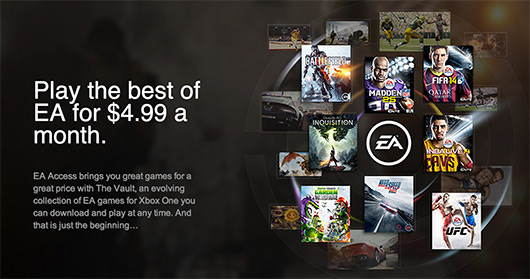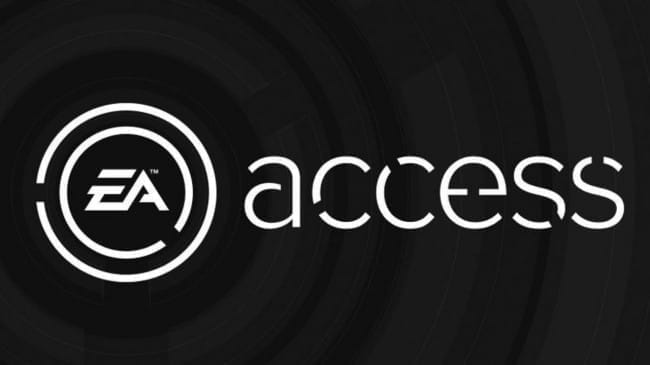If you have any eye on console gaming, you've probably heard about Playstation Plus and Games with Gold. Each is a respective service on Sony and Microsoft's consoles. While Playstation Plus really started the trend, offering a deal that at the time was considered crazy. Pay fifty dollars a year, get free games every month, and keep them for as long as you like so long as you have a subscription going. This wasn't just budget titles though. Sony put its month where its mouth was with titles like inFamous 2 and WipeOut HD. Initially third party support was slow, but now most major publishers have thrown their games at the service. Sony even included a one hour trial service for non-library titles so you could at least try them for free before deciding if you wanted to buy them or not. Additional perks like 75% discounts on certain digital games, and the service has been a success. With now two games going out monthly for PS Vita, PS3, and PS4, Sony made a huge step forward that got many gamers (myself included) to finally give digital gaming a try. They even pushed Plus as a requirement for multiplayer on PS4, a daring choice given that all Sony consoles previously had free online multiplayer.

Microsoft was slower in response, but eventually released a counter-argument with Games with Gold. Microsoft had already long been offering Xbox Live Gold, which gave gamers quality online multiplayer access and a number of perks like exclusive access to demos and betas, so it was merely added to the current subscription that also cost fifty dollars a year. While only two games were offered per-month by Microsoft, each game remains in your library regardless of subscription. Much like PS Plus, the service is picking up speed but had an even slower start by opening with Assassin's Creed II and Halo 3, both of which were nearly half a decade old by the time of being offered. Moving the service to also provide Xbox One games however has been a major aid, offering both launch and more recent Xbox One titles.
Still, at in its current state, this is more a contest of who can offer the most to their audience than an evolution in how we play games. The PS Plus and Games with Gold games range from current releases to older classics, with a fair amount of indie games and more overlooked titles like Spec Ops: The Line. The fact that gamers took so well to it surprised a lot of people. Some of those people would be publishers. Some of those publishers, work at EA. Now, EA is stepping up to the plate with EA Access, an Xbox One exclusive subscription service that will give gamers access to four (approximately, not all details have dropped) EA games a month, with previous titles remaining in your library but still requiring a subscription, much like PS Plus. You'll likewise have 10% discount on all EA digital products, including things like Battlefield Premium and Titanfall's Season Pass. Here's the thing though, it will only cost you either $4.99 a month, or $29.99 a year. So you actually pay a price cheaper than Battlefield 4 is at retail, and not only get Battlefield 4, but also Peggle 2, FIFA 14, and Madden NFL 25. For an opening, those really only appeal to a casual audience, and the console exclusivity seems odd, but there's a twist to all this.
Previously, all these services, which have only existed for a few years now, were console-maker specific. You didn't offer your own service independently, you offered it through the hardware producer like a cable company. Except now, there's the possibility that if EA Access works, to even a somewhat notable degree, we could see this happening more than once. If EA, Ubisoft, and Activision/Blizzard are all happy to make their own online stores on PC, what's to stop them from making a subscription service? It gets them money flowing in monthly, it keeps their games active, it disables almost any chance of used-game sales with subscribers, it moves the goods to being digital-only so an internet connection is needed to get their product by default, and most importantly of all, it offers control over what their consumers experience. Some of that... is kind of scary to imagine in the hands of some publishers, but its a reality we might face. "Might" is the operative word here, but with Sony even trying to branch into game streaming with PS Now, it seems likely more than one publisher will test the waters unless EA Access completely bombs.

There is one thing though that publishers are not going to see coming, and will hit GameStop just as hard as the decline in used game sales: in a subscription based gaming world, pre-order bonuses no longer matter. GameStop can try to claim it needs exclusive gameplay features to get consumers to pre-order from them more than anyone else, but if subscriptions become a thing, then physical games get further shoved into a niche. They'll only be able to buy so many boxed copies, and if some publisher gets daring enough, they could potentially pull out any sort of physical copies entirely. Instead of games being exclusive to consoles, they could be exclusive to services. Imagine if the next Battlefield or Call of Duty was subscription only, or the only physical copies were collectors editions. What if the season pass for whatever is Dragon Age 4 comes as a free subscription exclusive. I could go on, but you get the point.
This would cut GameStop off at its knees, and it would have to suddenly provide a serious drop or new major incentive for trade-ins, used games, and pre-order bonuses other than "if you play offline, you can get a disc copy here". The irony of it all would be that GameStop, being the largest game selling company in America, would most likely end up offering sign-ups for such services. Because when you can't wage war against the very producers who are wholeselling you their products. GameStop has been continually frustrating yet courting publishers for years, and its done plenty of good business for them, but there's very little they could do in this situation. Dropping anything more than ten to fifteen dollars off the price tag of used games would be drastic and overall cut into those much-toted profit margins. The original way of doing things would be that much harder, as pre-order bonuses would continue to be less and less worth the $60 asking price, if they were offered at all (or worse, also offered to anyone using the subscription service as well). Short of some crazy-brilliant restructuring, accounting, and downsizing, this would be a critical blow to the game selling juggernaut.

What's also interesting though is how this could actually positively impact the indie market. Any given year, enough titles release at $60 to make up more than a thousand dollars worth of purchases. If the average gamer gets to the point of only needing to pay around a hundred and fifty dollars to get a majority of games from publishers such as EA, Activision, 2K, Ubisoft, Sony, Microsoft, and Bethesda, then the rest of their spending money is open to indie games and smaller AA titles. Not only that, but with subscription services, we'd see an even greater potential shift towards indie gaming in regular digital marketplaces like Steam, GOG.com, and Origin. While inevitably such subscription services would come with their own DRM/user software (let's face it, that's what services like Steam were originally meant as), the rest of the titles that aren't under mega-publishers could very well flourish.
The biggest and brightest would get featured in subscriptions, whilst the rest would have a greater hold digitally, although marketing would be even harder due to the ceiling presented by subscriptions. The major way it could harm indies is by making them seem less worth the price in the average casual gamer, but its rare they'd appeal to such a gamer anyway. With the lowered difficulty curve for game development, indie dev studios are exploding in number every month already. That said, this all is pure speculation, especially as the topic of the future of indie development is a whole OTHER chaotic mess of Steam Greenlight, Humble Bundles, and more. I'm merely saying, it might actually pay off for indie developers. Maybe they'd respond and make indie subscription systems? It's all very murky and harder to predict at this level of the industry.
So what does it all mean? What does it mean man? Is it a crazy conspiracy? Are all games going to become like cable television? No, at least I really hope it doesn't. You see, there are two sides to this coin. Subscription-based gaming is kind of like gambling, but is a rare sort of gamble where you are sure you'll at least win part of the time. Unless you are very lucky, you probably won't beat the house, but if you do, congratulations and get out with your winnings as fast as you can. Still, it also is a far more lucrative offer to gamers like myself who don't have the cash to drop on every game that releases. I've, on record, spent $60 on three titles. Dead Space 3, Bioshock Infinite, and FUSE. The latter two were for reviewing purposes. I have absolutely no interest in doing so again, unless I have to for work. Spending money on PS Plus has been much more rewarding, giving me a chance to play games like Hotline Miami and Remember Me, games I never would have had the chance to play otherwise. Also, if publishers start offering early access to games before their launch, like EA is hinting at with EA Access, then that's a preview written up there and then. For other people, its just a limited time demo or exclusive sneak-peak on what's coming next.

I don't believe we'll see the death of pre-orders or GameStop any time soon. What I do believe is, subscription based gaming is going to be a thing. Even just today, Activision-Blizzard has admitted that pre-orders are starting to decline, but it's not going away, and it could have some major ramifications for the industry. As a consumer, you should keep your eye out for these sorts of services. Maybe they'll be a huge boon to you and get you playing more games than you'll ever want for less than the price of a single launch title. Maybe it'll seriously hurt your ability to play games offline. All you can do right now is make the choice you feel is right with your money. Because that's what these giants will respond to, and it'll speak for the future of game distribution. Weigh your options, and choose wisely.
Have a tip, or want to point out something we missed? Leave a Comment or e-mail us at tips@techraptor.net













